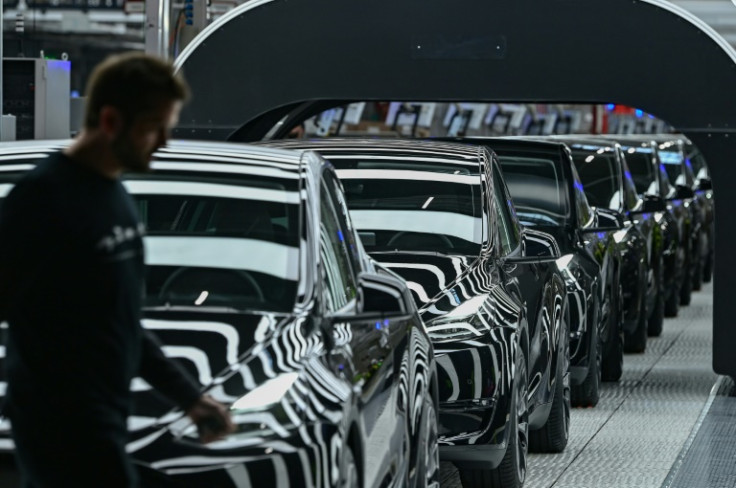China Could Turn From An Asset To A Liability For Tesla

China could turn from an asset to a liability for Tesla, from a market with significant potential gains to a market with substantial losses.
When Tesla entered the Chinese market seven years ago, it hoped the world's most populous economy would bring a windfall of profits. Wall Street liked this narrative. It added buzz to the company's promise to conquer the world and another reason to justify its inflated valuation.
Today, the EV pioneer has made some gains in the Chinese market, but it is facing enormous pressure from scores of domestic EV makers. They threaten to turn the company's foray into the Chinese market from an asset to a liability.
Government-backed entities directly subsidize domestic EV-makers. They include local government investment funds, strategic industry funds, or state-owned enterprises (SOEs) in the automotive industry, meaning that Tesla is competing against China Inc.
Government support has helped one of the domestic producers, BYD Auto, become the world's largest EV seller, catching up in profits with Tesla.
"Chinese automakers, particularly BYD and Geely, have rapidly become leaders in the manufacture of plug-in hybrid and fully electric vehicles," Peter Maithel, Automotive Industry Principal at Infor, told International Business Times.
"In fact, BYD is now the world's largest maker of these vehicles by volume. Their meteoric rise (by some estimates, BYD has enough production capacity to manufacture four million cars a year) poses a global competitive threat to not only top EV makers like Tesla but also other US- and EU-based automakers," Maithel said.
In addition, government support has allowed EV producers to engage in price destruction, which makes it hard for any market participant to make or maintain profits in the long run.
A couple of weeks ago, premium EV SUV maker Nio announced another $2.9 billion in losses as price and profit destruction spread in the EV market. Early in January, Tesla cut the price of its new China Model 3 to 245,900 yuan and the price of the Model Y to 258,900 yuan. These cuts followed a 6% cut in the price of Model 3 last December and an 11% cut in the price of Model Y during the same period.
"With its aggressive pricing strategy and impressive delivery figures from the Shanghai Gigafactory, Tesla is making bold moves to stay ahead in the world's largest EV market," John Ellmore from U.K.-based Electric Car Guide told IBT. "Yet, Tesla's position in the Chinese market is challenged by local EV makers cutting prices to attract consumers."
"Companies like BYD and Xpeng have been leading this trend, with BYD cutting the price of its Han luxury car and Xpeng reducing the price of its G6 SUV," he continued. "This environment of heightened competition and price sensitivity makes China both a crucial market and a challenging one for Tesla."
Juscelino Colares, Schott-van den Eynden Professor of Law and Political Science at Case Western Reserve University, provides further insight into Tesla's China problems.
"Indeed, Musk's plans for a massive battery and car production in China have had setbacks the last year," he said, adding, "From BYD surpassing Tesla as China's #1 electric vehicle manufacturer to increasing CCP control over battery-making materials and tighter export licensing requirements, China's status as the world's number one EV industrial cluster keeps growing—only for the over 30 Chinese-controlled EV makers."
Already, Chinese EV-makers have a large presence in emerging markets, including Mexico, where they hold a large market share. In addition, they are getting ready to "colonize" Tesla's home market. For instance, Chinese EV sedan maker Polestar sold 12,240 units in 2023, up 29% from the previous year.
China's foray into the U.S. market could accelerate as EV adoption gains traction, moving from the less price-sensitive market segments of "pioneers" and the "early adopters" to the more sensitive market segments of the "early majority" and "late" majority along the Rogers Curve of new product diffusion.
"The jury is still out on whether Chinese EV makers will be able to beat Tesla in its home market (they have already done so in Europe)," Maithel said, adding, "But one thing is for certain: other EV manufacturers will need to accelerate operational efficiencies and resilience to overcome continuing cost pressures and a slowing US EV adoption rate and maintain and grow their market share."
Meanwhile, the EV pioneer is caught in a cold tech war between Beijing and Washington, raising the prospect of new tariffs on China-made vehicles and EV equipment.
"Musk's emphasis on China production doesn't seem like a sustainable strategy for the future, adding to Elon Musk's China troubles," Professor Colares said.
(Disclosure: The author has no Tesla positions)
© Copyright IBTimes 2025. All rights reserved.






















